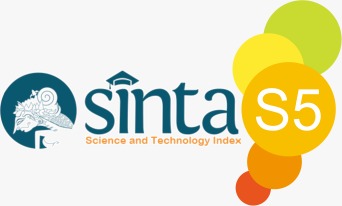DESIGN SIMULATION OF THREE PHASES INDUCTION MOTOR CONTROL BASED ON DTC
Abstract
For instance, the scalar control is a variable regulation of volt per hertz to sets the magnitude scaling of the motor, of course by linearization of two parameters that is voltage and frequency, which sets to a constant ratio for the only concept of scalar control. In contrast, this method has the disadvantages that cannot decrease or increase the speed range from lower voltage of low speed or upper limit voltage of high speed, due to a certain regions are experiencing issues in constant ratio precision because of switch loss. The resulting output signal is not only has a high harmonic which would lead to losses in the form of heat, but is also causes poor performance at low frequency. For investigation, we used simulation using Direct Torque Control or also called DTC. The application of DTC, becoming one of the motor drive method of induction motor, and would produce the efficient power consumption because of switching pattern based on vector voltage. For simulation result, we use the test techniques when unencumbered and when burdened by parameters of rise time value, settling time value, and set point value.Downloads
Published
2015-06-11
How to Cite
Erawati, F., Rochmana, A., Wishnuprakasa, A., & Purwanto, E. (2015). DESIGN SIMULATION OF THREE PHASES INDUCTION MOTOR CONTROL BASED ON DTC. Technologic, 6(1). Retrieved from https://technologic.polytechnic.astra.ac.id/index.php/firstjournal/article/view/72
Issue
Section
Table of Contents








